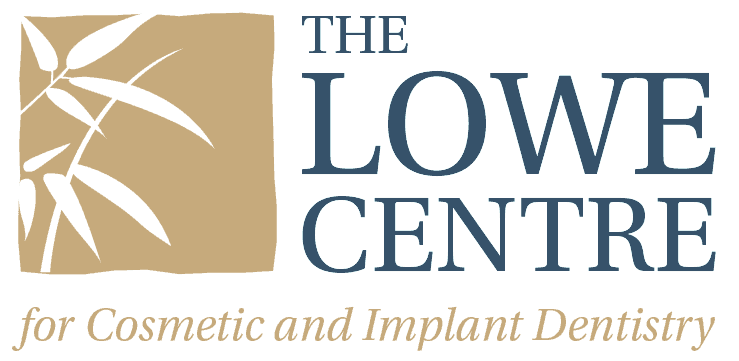
Prevent Gum Disease, Protect Against Alzheimer’s
Here at The Lowe Centre for Cosmetic and Implant Dentistry, we like to stay on the cutting edge of medical news, in addition to what is happening in our field. So when the two intersect meaningfully, we are all ears! There has been a lot of interesting research into Alzheimer’s disease recently. What had us paying particular attention was the newly discovered connection between gum disease and Alzheimer’s.
What is Gum Disease?
When your gum tissue becomes infected, it is called gum or periodontal disease. Generally, gum disease is caused by plaque build-up under and along the gum line.
Plaque is a layer of bacteria that builds up on your teeth, gums, and tongue (yup, everywhere!) in between brushing and flossing. When plaque builds up, it can harden to form tartar. This hardened bacteria can infect gums and bone and cause gingivitis, the beginning stages of gum disease.
While gingivitis affects the gums, causing them to become sensitive and prone to bleeding, it can develop into periodontitis, a more advanced form of gum disease. This is when the infection moves from the gums, impacting bones and tissues. Advanced gum disease is no picnic, and can result in bone and tooth loss, severely impacting your bite and smile.
What is the connection between Alzheimer’s and Gum Disease?
New and recent studies have added to an already large body of research that confirmed the relationship between the Porphyromonas gingivalis bacterium, which is responsible for gum disease, and Alzheimer’s disease. This bacterium has been identified as contributing to lesions forming on the brain.
One study, published in the Journal of Alzheimer’s Disease, focused on a type of protein called tau, which is found in nerve cells in the brain. When tau interacts with the Porphyromonas gingivalis bacterium, it is freed from the nerve cell and undergoes physical changes. These newly modified tau filaments reattach to the nerve cell and contribute to the lesion formation that characterizes Alzheimer’s.
A second study, published in the Journal of Alzheimer’s Disease Reports, corroborated these findings. The findings illuminated the ways that the gum-disease-causing bacterium contributes to the formation of amyloid-beta plaques, a major type of lesion seen in Alzheimer’s patients.
How Do You Prevent Gum Disease?
The good news is that good oral hygiene is a simple, preventative process that most people can undertake. It’s a powerful, positive endorsement for preventative health practices.
There are no special products or tricks to preventing gum disease, just good old-fashioned oral hygiene practices.
Brush, Floss, and Rinse Every Day
So long as flossing happens daily, it doesn’t make a big difference when you do it, just so long as you do it properly. The same goes for brushing your teeth, although twice a day is ideal and after meals are best. Lastly, rinsing after flossing and brushing is an essential component of their effectiveness. You can choose a mouthwash, but water is just as effective when you combine it with regular brushing and flossing.
Don’t Smoke. Don’t Start.
It’s old news, but it bears repeating. Smoking has no benefits and negatively impacts your health across the board. By weakening your immune system, smoking makes it harder for your body to recover from the damage it does. Smoking can cause oral cancers, creating the perfect environment for the Porphyromonas gingivalis bacterium to thrive. If you want to avoid gum disease, then you have no business smoking.
Get Biannual Dental Cleanings
A patient with excellent oral hygiene needs to come in for a dental cleaning every six months. If you have had a recent run-in with gum disease, it is possible that your dentist has asked you to come in for more regular cleanings. Once your teeth and gums are in a sustainably healthy condition, the biannual visits are an essential part of your self-care routine. Even the most dedicated brusher and flosser will experience some natural plaque buildup. By having build-up removed every six months, you keep your teeth and gums healthy. This also ensures you get an oral cancer screening regularly.
Prevent Gum Disease and Protect Against Alzheimer’s With Oral Hygiene
The recent scientific findings about the connection between gum disease and Alzheimer’s serve as a great reminder to take oral hygiene seriously. By eliminating the bacteria that cause gum disease, you also reduce the chances that these bacteria can interact with nerve cells in the brain and contribute to lesions. By simply committing to brushing, flossing, and rinsing daily, you are doing yourself a huge favour.
To check the rest of those oral hygiene boxes, don’t forget to schedule your biannual hygiene appointment!
Dr. Lowe and his team have been transforming smiles for more than 30 years.
Book a 15-minute virtual consultation today to learn what makes The Lowe Centre special: https://www.mysmilemakeover.com/.
Dr. Ed Lowe
The Lowe Centre for Cosmetic and Implant Dentistry
